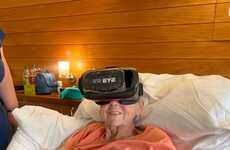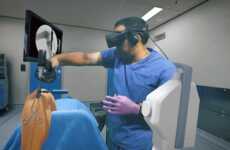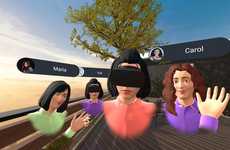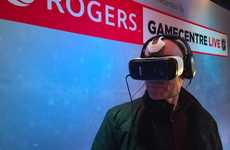
The University of Westminster is Using VR to Teach Cases to Law Students
Joey Haar — September 19, 2016 — Social Good
References: legalcheek & digitaltrends
The University of Westminster in Britain is teaching its law students about cases by immersing them in the scenario. But while typical law schools immerse students in cases with copious amounts of readings, the University of Westminster has taken a more futuristic approach by teaching case studies through the use of a VR experience.
Entitled 'REal and Virtual Reality Law,' or REVRLaw, the program creates VR experiences for one of the university's classic case studies through the VR Unity engine. In the case, two brothers who are shooting a film encounter financial difficulties, and one of the brothers ends up dead. The goal of the virtual case study is to decide whether or not the surviving brother is guilty of murder under the law.
Entitled 'REal and Virtual Reality Law,' or REVRLaw, the program creates VR experiences for one of the university's classic case studies through the VR Unity engine. In the case, two brothers who are shooting a film encounter financial difficulties, and one of the brothers ends up dead. The goal of the virtual case study is to decide whether or not the surviving brother is guilty of murder under the law.
Trend Themes
1. Virtual Reality Education - Using virtual reality technology to enhance educational experiences, such as teaching case studies to law students.
2. Immersive Learning - Creating interactive and immersive learning experiences through virtual reality technology.
3. Case Study Simulation - Simulating real-life case studies in a virtual reality environment to facilitate learning and decision-making.
Industry Implications
1. Education Technology - Developing innovative technologies and software for the education sector, including virtual reality platforms for immersive learning.
2. Legal Education - Introducing virtual reality experiences and simulations into law school curriculum to enhance case study learning and decision-making skills.
3. Entertainment and Media - Utilizing virtual reality technology in the creation of immersive and interactive storytelling experiences, such as VR films and scenarios with legal themes.
3.2
Score
Popularity
Activity
Freshness























